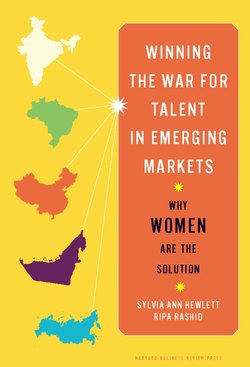Читать книгу Winning the War for Talent in Emerging Markets - Sylvia Ann Hewlett - Страница 4
На сайте Литреса книга снята с продажи.
EDUCATED BRIC WOMEN: A NEW NARRATIVE
ОглавлениеWhy has it taken so long to notice them?
The main reason: despite an expanding body of work on women in emerging economies, few studies consider the potential of educated, ambitious women. Much of the existing research casts them in a narrative of victimhood. Books like the aforementioned Half the Sky and From Outrage to Courage by Anne Firth Murray, as well as highly publicized reports and initiatives from the United Nations and the World Bank, promulgate the notion that all women in developing countries are oppressed, their potential obscured by poverty and their presence relegated to the sidelines of male-dominated cultures.
Our research shows this to be untrue.
Just as in the United States and in other developed economies, women in emerging markets are enrolling in and graduating from universities and graduate schools at rates that match and often outstrip those of men. Furthermore, these women are highly ambitious; according to our surveys, nearly two-thirds of women in China and Russia and 85 percent of women in India consider themselves very ambitious—almost twice as many as in the United States. As opportunities undreamed of a generation ago open up in BRIC countries, one regional expert remarks, “Women no longer have to apologize for their ambition.”
Educated women from the BRIC countries who step out of the shadows of their less-fortunate sisters encounter another misconception: that their ability to participate in today's workforce lags behind that of their American and European counterparts because of the persistence of traditional attitudes, explicit discrimination, or an absence of opportunities. In reality, under Communism, women in Russia and China were encouraged to help build their nation's economies and were put to work in numbers equal to men. In the Soviet Union, for example, 90 percent of working-age women were in the paid labor force.8 In Brazil, India, and the dynamic economies of the Middle East, traditionally close-knit extended families and the availability of inexpensive domestic help enable ambitious women to mitigate the child care issues that cripple the careers of many Western women professionals.
